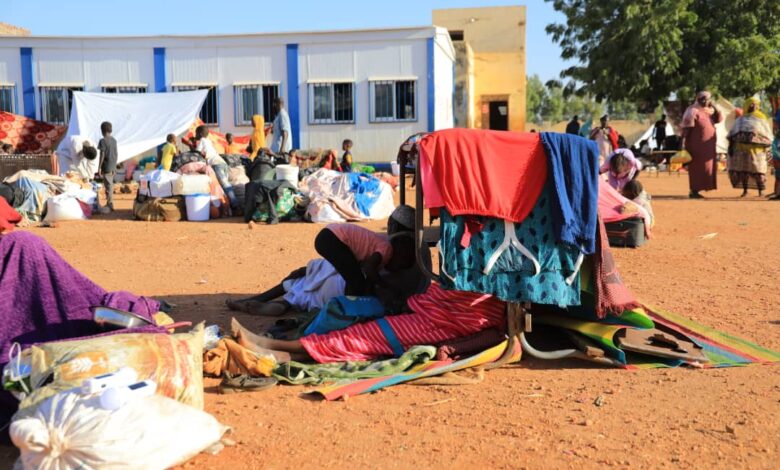Global Leaders, Aid Groups Converge To Address Sudan’s Humanitarian Crisis
According to the UN, $4.1 billion is required to address the urgent needs of people facing a terrible humanitarian crisis in Sudan. Yet only half of this amount has been pledged.

One year after conflict broke out in Sudan, international aid groups and leaders from different parts of the world asked the warring parties to put an end to the violence and bloodshed. On April 15, 2024, representatives from France, Germany and the European Union gathered at an international humanitarian conference in Paris, expressing their support for the Sudanese civilians and the primary victims of the war.
With over six million people displaced since 2023, the ongoing war has turned Sudan into the epicentre of the world’s displacement crisis. Around 1.76 million people have since fled the North African country to seek refuge elsewhere. Also, 24.8 million people from the country — about half the total population — direly need humanitarian assistance.
Sudan has been engulfed in a civil war since April 2023 involving the Sudanese Armed Forces (SAF) and the paramilitary Rapid Support Forces (RSF). Over 14,600 people have so far lost their lives to the conflict.
At the humanitarian conference, international donors pledged about $2.1 billion to support civilians in Sudan and those seeking refuge in other countries. However, this is still “gravely inadequate,” according to the Norwegian Refugee Council (NRC), which said the donation only covers half of the urgent humanitarian needs, leaving millions at risk of starvation and displacement.
In a press statement, Will Carter, NRC’s director in Sudan, noted that while the conference represented a genuine effort to address the alarming humanitarian situation in the country, urgent actions are needed for millions of vulnerable civilians.
“The funds pledged today are desperately needed to save millions of lives,” Carter said.
The situation in Sudan is exacerbated by the obstruction of aid delivery, with many vulnerable populations trapped in areas inaccessible to humanitarian organisations due to ongoing conflict.
Carter remarked, “The test for the international community will be in the weeks and months to come.”
“The words echoed today calling on warring parties to stop using aid as a weapon of war must be followed with continued diplomatic pressure for humanitarian aid. Far too many civilians are trapped in areas that we cannot quickly or safely reach as a result of aid obstruction. We need the international community’s continued support to follow their words today with deeds to help open up humanitarian routes and overcome restrictions ahead of a looming, man-made famine.”
The impact of the conflict on food security is equally concerning. According to a report by the World Food Organisation (WFP), over 25 million people across Sudan, South Sudan, and Chad are trapped in deteriorating food security, with at least 17 million in Sudan alone at risk of famine.
“The war in Sudan risks triggering the world’s largest hunger crisis,” Cindy McCain, WFP’s Executive Director, said. “20 years ago, Darfur was the world’s largest hunger crisis and the world rallied to respond. But today, the people of Sudan have been forgotten. Millions of lives and the peace and stability of an entire region are at stake.”
Support Our Journalism
There are millions of ordinary people affected by conflict in Africa whose stories are missing in the mainstream media. HumAngle is determined to tell those challenging and under-reported stories, hoping that the people impacted by these conflicts will find the safety and security they deserve.
To ensure that we continue to provide public service coverage, we have a small favour to ask you. We want you to be part of our journalistic endeavour by contributing a token to us.
Your donation will further promote a robust, free, and independent media.
Donate HereStay Closer To The Stories That Matter




